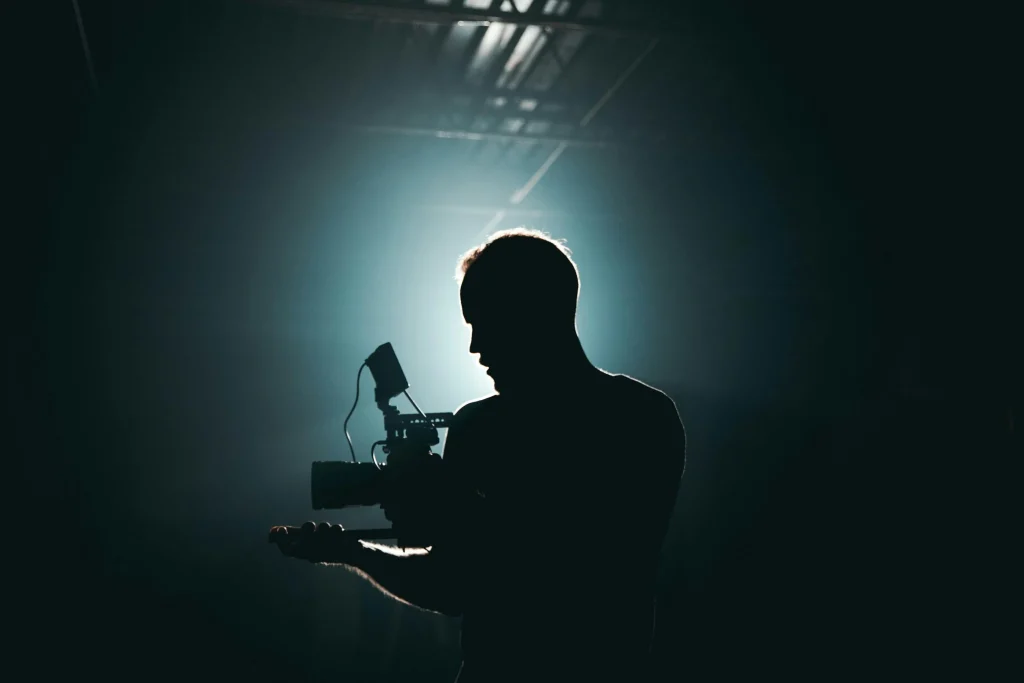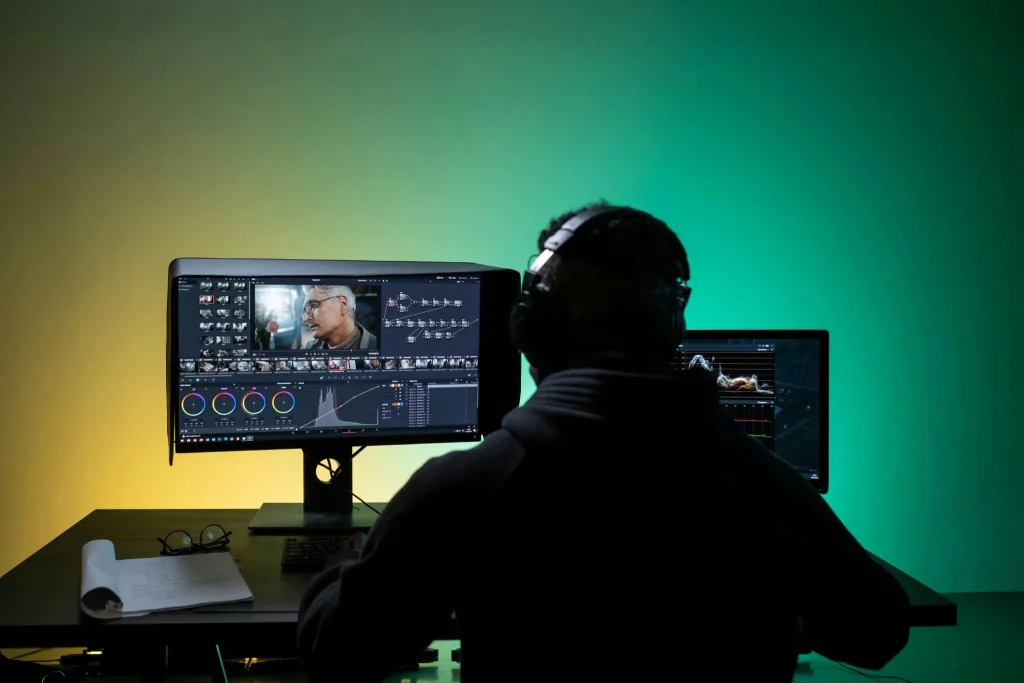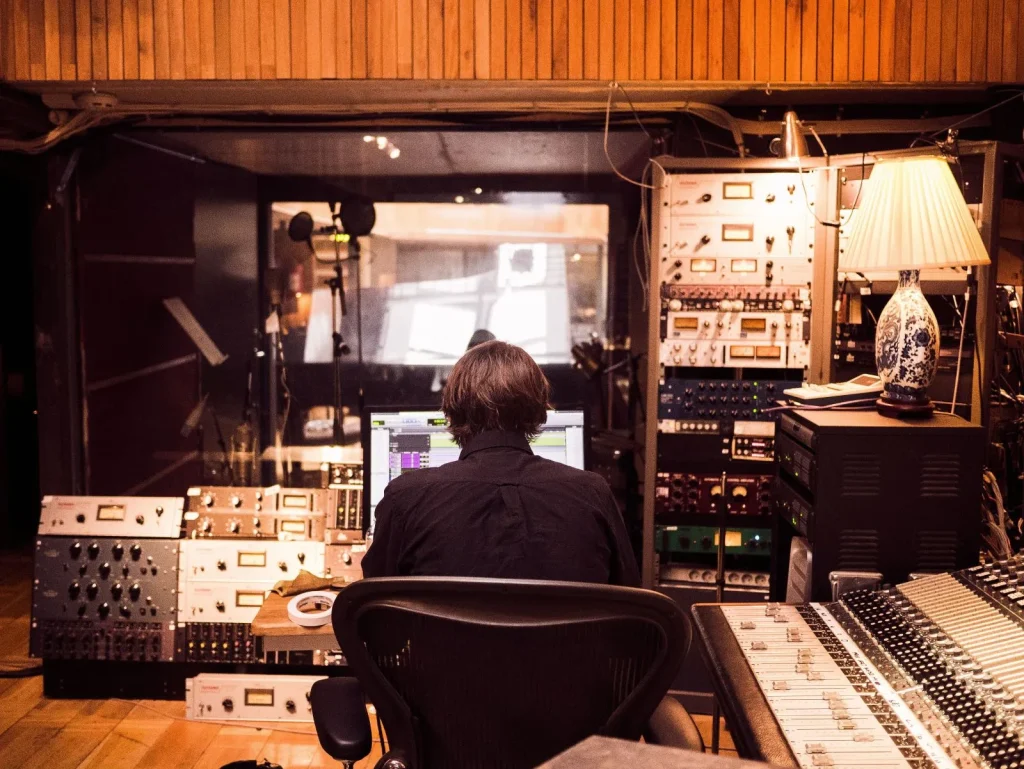This year, the Oscars are going to be a lot about Oppenheimer — or, at least, that’s the expectation, given the epic World War II drama leading the race with 13 nods from the Academy.
One of the nominations where Christopher Nolan’s movie is not-so-surprisingly present is Best Sound — a celebration of the most powerful mixing, recording, design, and sound editing.
Let’s explore the feature films competing in that category.
Oppenheimer
Christopher Nolan aimed for a suspenseful, massive, and enigmatic sound for his biographical thriller about ‘the father of the atomic bomb.’ To achieve this, he teamed up with Richard King, a sound designer and supervising sound editor, who has also worked on Inception and The Dark Knight, and is already a four-time Oscar winner.
Dialog mixer Gary A. Rizzo (Dunkirk, Inception), music and sound effects mixer Kevin O’Connell, and production sound mixer Willie Burton also joined the collaboration.
The Oppenheimer team used a variety of real-world natural sounds in their work, such as physical bangs and snaps. And, as King points out, Nolan aimed to use ‘only production sound’ whenever possible.
A lot of electronic components were also implemented to craft various sounds, including the Trinity test explosion sound, the sound of the black hole, and the sound of particles and waves, among others.
Maestro
Richard King is also an Oscar contender with another movie, Bradley Cooper’s drama Maestro, which is about Leonard Bernstein and his wife Felicia Montealegre. The sound team includes production sound mixer Steven Morrow, music editor and music producer Jason Ruder, and re-recording mixers Tom Ozanich and Dean Zupancic, all of whom have previously worked with Cooper on A Star Is Born.
With the story centered around a conductor, composer, and pianist, the sound of Maestro is described by King as being ‘used in a musical way.’
Cooper also wanted the sound to be recorded live — for instance, at the parties, praising meticulously mixed overlapping dialogue, and concerts. One of the highlights is Bernstein’s conducting of Gustav Mahler’s ‘Resurrection’ at Ely Cathedral in London. In-the-moment recording added to the authenticity of the drama’s atmosphere.
The Zone of Interest
Jonathan Glazer’s Holocaust drama centers around a real-life Auschwitz commandant and his wife who try to build a dream life in the countryside next to the camp. The movie presents a horrifyingly disturbing and dark soundscape from re-recording mixer Johnnie Burn (Poor Things) and production sound mixer Tarn Willers.
After carefully researching the era and everything about Auschwitz, the team crafted violent sounds for the movie, exploring the contrast between nature and the mechanical environment.
The Creator
Gareth Edwards’s sci-fi movie tapped production sound mixer Ian Voigt, supervising sound editors Erik Aadahl and Ethan Van der Ryn (A Quiet Place), and re-recording mixers Tom Ozanich and Dean Zupancic (A Star Is Born) to master a futuristic and troubling audio experience for the viewers.
Set in 2070, the movie depicts the war between humans and AI, requiring the team to create particularly unnerving yet dynamic sounds for humanoid robots, weapons, vehicles, and various devices featured in the action.
Mission: Impossible — Dead Reckoning Part One
Another installment of producer-star Tom Cruise’s film series had supervising sound editor James Mather and re-recording mixers Chris Burdon and Mark Taylor in the team, all of whom worked on Top Gun: Maverick, and production sound mixer Chris Munro (Gravity).
Here, we also see a global AI threat, but this time with Tom Cruise’s character Ethan Hunt on a mission to thwart it.
Challenges for sound professionals included the fight in Venice, the car chase in Rome, and the dynamic kitchen scene during the Orient Express train wreck.
The 96th Oscars will be held on Sunday, March 10.


